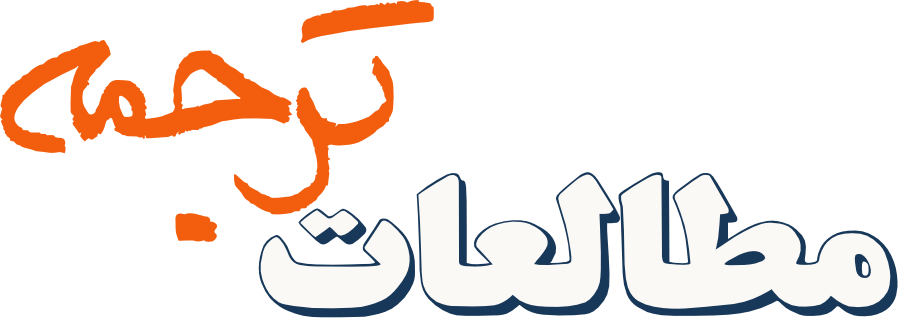چرخش علمی-فناوری در مطالعات ترجمه
چکیده
مقالـۀ حاضر تلاش دارد صاحبنظران مطالعات ترجمه را نسبت به رابطۀ میانرشتهای بین مطالعات ترجمه و مطالعات علم و فناوری آگاه نماید. نگارندگان تلاش دارند استدلال کنند که پیشرفتهای حاصل شده در عرصۀ فناوریهای ترجمه (شامل مترجمیارها و ماشین ترجمه) امکاناتی فراتکنیکی را در فناوریهای ترجمه به بار آورده است؛ مانند قدرت، جنسیت، اخلاق، توازن زبانی فرهنگی و اقتصاد. نگارندگان همچنین تلاش خواهند کرد استدلال کنند که رشتۀ مطالعات علم و فناوری چگونه میتواند با امکانات نظری و روششناختی خود، به پژوهشگران مطالعات ترجمه کمک کند تا این مسائل فراتکنیکی را مورد بررسی قرار دهند.
کلمات راهنما:
فناوری, مطالعات علم و فناوری, نظریه شبکه عاملین, فناوری ترجمه, عاملین فرافنیمراجع
Brin, S. (2018, Jan Month). Alphabet Investor Relation. Retrieved from https://abc.xyz/investor/founders-letters/2017/index.html
Callon, M., Courtial, J.-p., Turner, W. A., & Bauin, S. (1983). From Translation to Problematic Network:An Introduction to Co-work Analysis. Social Science Information (SAGE), 22(2), 191–235.
Candel-Mora, M. (2016). Translator Training and the Integration of Technology in the Translator's Workflow. In M. Carrio-Pastor, Technology Implementation in Second Language Teaching and Translation Studies: New Tools, New Approaches (pp. 49–70). Valencia: Springer.
Courtial, J.-P. (1986). Technical Issues and Developments in Methodology. In M. Callon, J. Law, & A. Rip, Mapping of the Dynamics of Science and Technology: Sociology ofScience in the Real World (pp. 189–210). London: Macmillan Press.
Cronin, M. (2013). Translation in the Digital Age. London and NewYork: Routledge.
Garg, N., Schiebinger, L., Dan Jurafsky, D., & Zou, J. (2018). Word Embeddings Quantify 100 Years of Gender and Ethnic Stereotypes. National Academy of Sciences, 115(16), 3635–3644.
Holmes, J. S. (1998/2004). The name and nature of translation studies. In L. Venuti, Translation Studies Reader (pp. 80–92). London and New York: Routledge.
Karlqvist, A. (1999). Going beyond disciplines: The meanings of interdisciplinarity. Policy Sciences, 32(4), 379–383.
Klein, J. (1990). Interdisciplinarity: History, Theory and Practice. Detroit: Wayne State University Press.
Lambert J.-R. & H. van Gorp (1985) 'On describing translations' In T. Hermans, The Manipulation of Literature: Studies in Literary Translation.(pp. 42–53). Beckenham: Croom Helm.
Latour, B. (1996). On Actor-Network Theory: A Few Clarifications. Soziale Welt, pp. 396–381.
Massardo, I., & van der Meer, J. (2019, Dec Mon). The Translation Industry in 2022: A Report fromthe TAUS Industry Summit. Retrieved from Translation Automation User Society: https://cdn2.hubspot.net/hubfs/2734675/Reports,%20ebooks/The%20Translation%20Industry%20in%202022.pdf
Munday, J. (2016). Introducing Translation Studies: Theories and applications (4 ed). London and NewYork: Routledge.
Nissani, M. (1997). Ten Cheers for Interdisciplinarity: The Case for Interdisciplinary Knowledge and Research. The Social Science Journal., 34(2), 201–216.
O'Hagan, M. (2017). 'Deconstructing Translation Crowdsourcing with the Case of a Facebook Initiative: A Translation Network of Engineered Autonomy and Trust? In D. Kenny, Human Issues in Translation Technology (pp. 25–44). London and New York: Routledge.
Olohan, M. (2017). Technology, Translation and Society: A Constructivist, Critical Theory Approach. Target, 29(2), 264–283.
Olohan, M. (2019, Dec Mon). Sociological Approaches to Translation Technology. Retrieved from https://www.research.manchester.ac.uk/portal/files/115891922/Olohan_2019_Sociological_Approaches_To_Translation_Technology_AAM.pdf
Olohan, M., & Davitti, E. (2017). Dynamics of Trusting in Translation Project Management: Leaps of Faith and Balancing Acts. Journal of Contemporary Ethnography, 46(4), 391–416.
Pedersen, D. (2017). Managing Transcreation Projects. Translation Spaces, 6(1), 44–61.
Pym, A. (2011, April 5). Democratizing translation technologies – the role of humanistic research. Retrieved Februery 2, 2016, from http://usuaris.tinet.cat/apym/on-line/research_methods/2011_rome.pdf
Rehm, G., & Uszkoreit, H. (2012). META-NET White Paper Series: Europe's Languages in the Digital Age (Vol. 31). (G. Rehm, & H. Uszkoreit, Eds.) Heidelberg, New York, Dordrecht, London: Springer.
Rehm, G., & Uszkoreit, H. (2013). The META-NET Strategic Research Agenda for Multilingual Europe 2020. (G. Rehm, & H. Uszkoreit, Eds.) Heidelberg, New York, Dordrecht, London: Springer.
Rehm, G., Uszkoreit, H., Ananiadou, S., Bel, N., Bielevičienė, A., Borin, L. … Zabarskaite, D. (2014). The Strategic Impact of META-NET on the Regional, National and International Level. Proceedings of the 9th Language Resources and Evaluation Conference (LREC 2014).Reykjavik: Springer.
Ritzer, G. (2005). Encyclopedia of Social Theory (Vol. 1). London and New Delhi: Sage Publications.
SDL Translation Technology Insights Executive Summary. (2016). Retrieved April 2018, from www.SDL.com: https://www.sdl.com/download/tti16-executive-summary/103386/thankyou
Sin-wai, C. (2015). The Development of Translation Technology. In C. Sin-wai, The Routledge Encyclopedia of Translation Technology (pp. 1–3). London and New York: Routledge.
Sismondo, S. (2010). An Introduction to Science and Technology Studies (Second ed.). Oxford: Blackwell Publishing Ltd.
Snell-Hornby, M. (1988). Translation Studies: An Integrated Approach. Amsterdam and Philadelphia: John Benjamins.
Snell-Hornby, M., Pöchhacker, F., & Kaindl, K. (1994). Translation Studies: An Interdiscipline. Amsterdam: John Benjamins.
Szostak, R. (2002). How to Do Interdisciplinarity: Integrating the Debate. Issues in Integrative Studies(20), 103–122.
Toury, G. (1995). Descriptive translation studies and beyond. Amsterdam: Jahn Benjamin.
Vieira, N. L. (2018). Automation anxiety and translators. Translation Studies, 1–21.
White, J. S. (2003). How to evaluate Machine Translation. In H. Somers, Computers and Translation(pp. 211–244). Amsterdam and Philadelphia: Jahn Benjamins Publishing.
Williams, J., & Chesterman, A. (2002). The Map: A Beginner's Guide to Doing Research in Translation Studies. Manchester: St. Jerome.
چاپشده
ارجاع به مقاله
شماره
نوع مقاله
مجوز
Copyright Licensee: Iranian Journal of Translation Studies. This article is an open access article distributed under the terms and conditions of the Creative Commons Attribution–NonCommercial 4.0 International (CC BY-NC 4.0 license).





